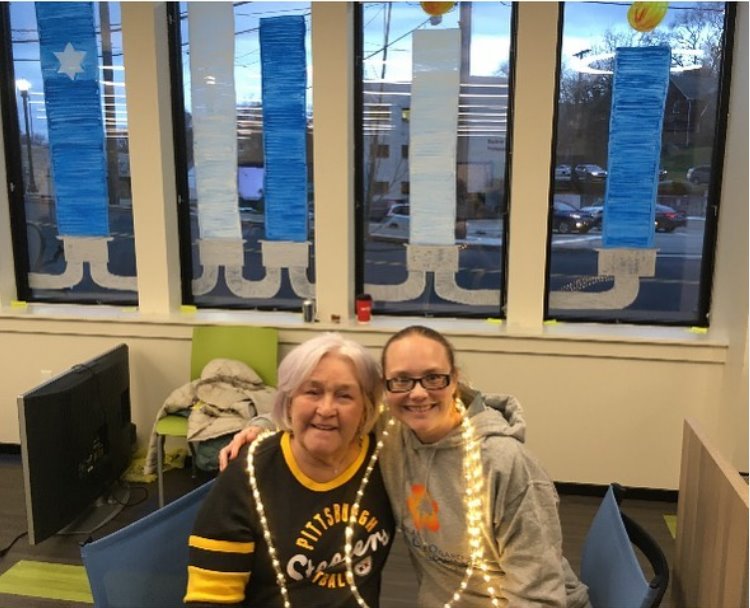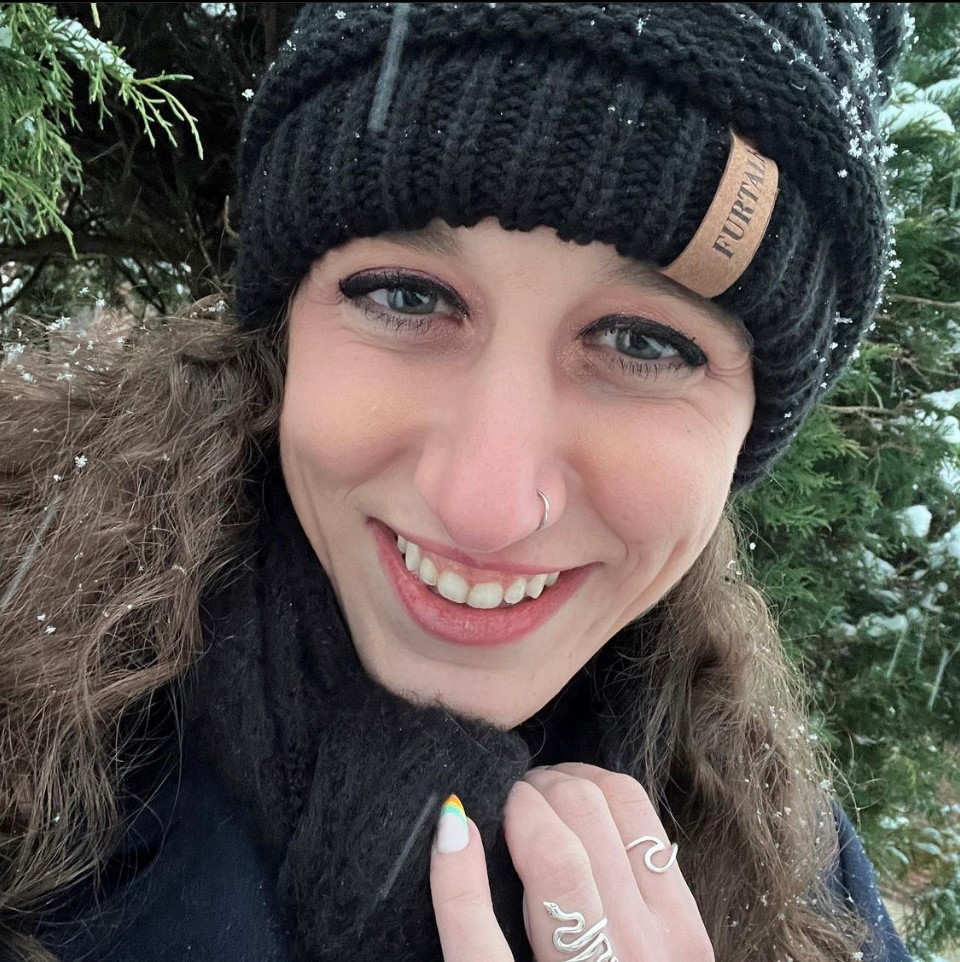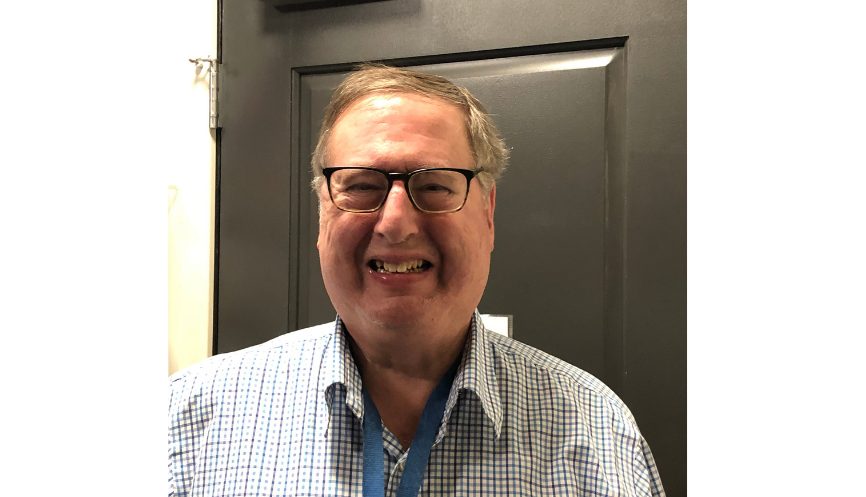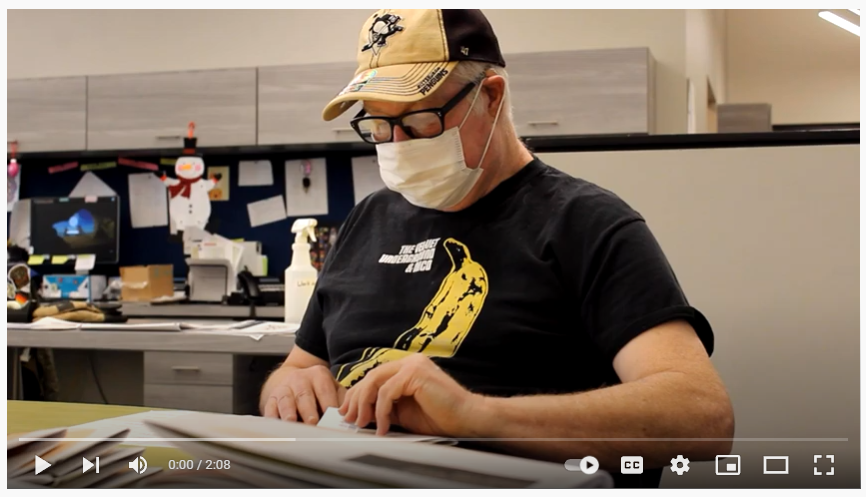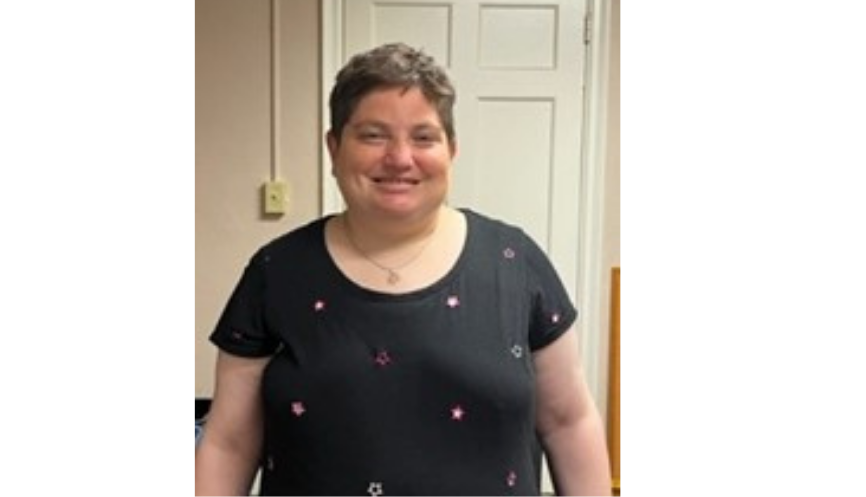Sharon Shapiro lives in Charles Morris Hall on Munhall Road in Squirrel Hill and participates in Jewish Residential Services’ Supportive Living Program. This program provides ongoing support which allows participants with intellectual disabilities to live independently in their community.
Sharon, who has ADD, a cognitive disorder, and a seizure disorder, has been employee of Giant Eagle for the past 21 years, she also has an excellent job history. Her parents and job coach helped her find the job which, importantly, provided access to better health benefits.
She gathers carts at Giant Eagle, which can sometimes be physically taxing for her. However, when she comes home at the end of her shift or if she has a difficult day and feels the need to unwind, she knows exactly what to do: cook. “Cooking helps me get out the stress,” she explained.
Sharon’s grandfather, a Holocaust survivor, owned a restaurant in Whitehall for several years. Growing up, she would watch and help her grandfather cook. “He never wrote any recipes down. They were all from memory, so I make my own version of the food he used to make,” Sharon said.
When she talks about cooking, she lights up; cooking relaxes her. She loves to bring various dishes to social events in Morris Hall and experiment with new versions of old recipes.
“I wish I could have went to culinary school,” Sharon explained. “Because of the medicines I have to take, I don’t have a steady hand, and I wasn’t sure if I would be able to get a job cooking.”
Many people with disabilities share Sharon’s concerns and sense of discouragement. The Americans with Disabilities Act, passed 32 years ago, prohibits discrimination on the basis of disability, and reasonable accommodations must be made to enable an individual to perform essential job functions. However, in 2020, only one-third of managers claimed to know the details of the ADA’s legal requirements. This makes it easy to see why people with disabilities perceive workplaces as inaccessible.
Although Sharon does not currently have her dream job in the culinary world, she does have work that adds structure to her day, provides her with the medical benefits she needs and gives her financial independence. She encourages anyone with a disability to speak to a job coach. A job coach can help with interview practice, transportation planning, and support an individual in sustaining employment.
Click here to see virtual events taking place during Jewish Disability Awareness, Acceptance, and Inclusion Month.
<-- Click Here to Return to the ConnectAbility Homepage
